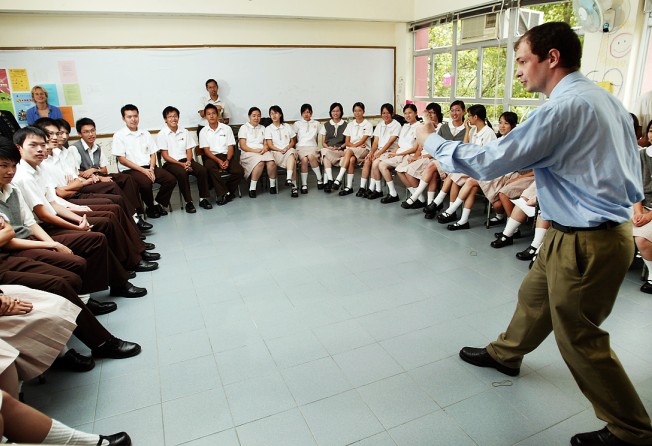Hong Kong’s native English-speaking teacher scheme can work, but only if we expand it

How effective has the NET programme been in enhancing the standards of English in local schools? We have been debating this question almost since the native English-speaking teacher scheme was first launched in 1998 for public secondary schools and in 2002 for primary ones. My fellow columnist Kelly Yang seems to think it's been a waste of money and time. That understandably has provoked an angry response from the chairman of the NET Association, arguing the programme has in fact achieved important results. I am afraid I will have to chicken out by taking the middle ground.
If language standards have really been slipping, as more than 90 per cent of people think they are in a recent Post survey, then at the very least the NET scheme has failed to halt the decline. But this clearly would be an unfair conclusion. Since the NET programme started, there have been three large-scale evaluation studies on it. A fourth one started at the end of last year and its results have not been published.
All three studies arrived at similar conclusions. At school, students have only limited opportunities to interact with NET teachers who - often being the only one at the school - have to teach multiple classes and levels while having to coordinate with other teachers.
Their role is also gradually marginalised as students move to secondary school, where exam scores become more important than natural language learning. Outside of school, students have limited exposure to English. The figures provided in one study are telling. Only 11 per cent and 22 per cent of local students use English regularly to communicate with family members and friends, respectively. And only 6 per cent of respondents report "very often" reading English newspapers or magazines, 9 per cent English-language books and 26 per cent watching English-language films.
In light of such limited exposure, NET teachers face a herculean if not impossible task. In absolute terms, they seem to cost a lot: HK$367 million and HK$387 million, respectively, for primary and secondary schools last financial year. But that's a pittance compared to the total annual HK$74 billion we spent on education.
Far from scrapping the NET scheme, I would suggest drastically expanding it to make it truly effective.